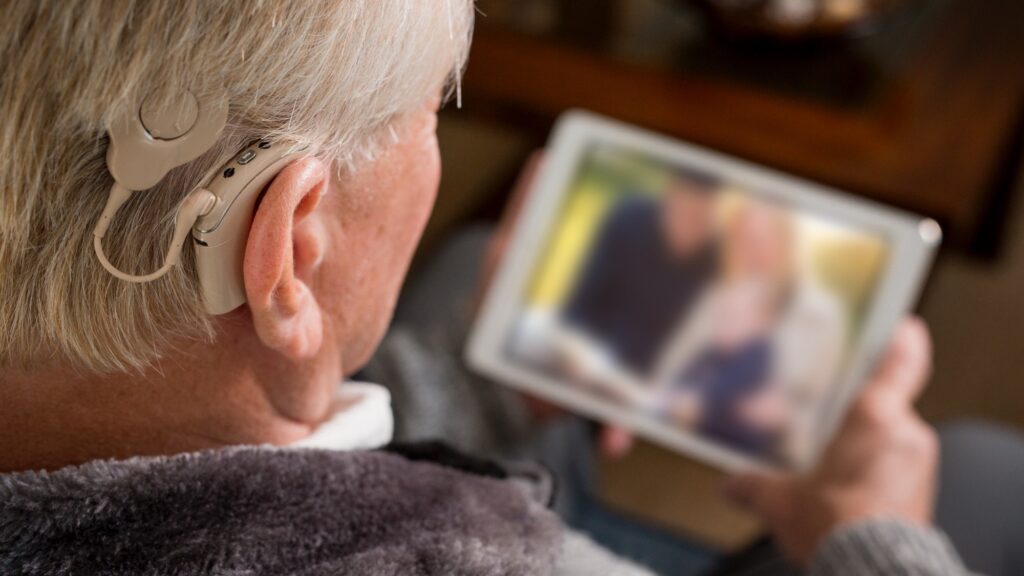The Centers for Medicare & Medicaid Services (CMS) has expanded coverage for cochlear implantation, making the procedure available to millions of additional individuals with hearing loss. Washington University faculty, including Lindburg Professor and Chair Craig A. Buchman, MD, have spent years working in support of the expanded coverage.
In 2014, Buchman and colleagues – Teresa Zwolan, PhD, John Niparko, MD, Jill Firszt, PhD, and the American Cochlear Implant Alliance (ACIA) – designed a study to examine the effectiveness of cochlear implants in Medicare beneficiaries who met an expanded candidacy profile for hearing (test score of 41% to 60%). Study findings supported the benefits of implantation in this patient population and were submitted as a part of a request for a National Coverage Determination (NCD) under the Social Security Act aimed at expanding current Medicare indications for a cochlear implant.
The CMS determination allows cochlear implant coverage for the treatment of bilateral, sensorineural, moderate-to-profound hearing loss in individuals who demonstrate limited benefit from amplification devices like hearing aids. Limited benefit is defined by test scores of less than or equal to 60% correct in sentence recognition tests. To be eligible, patients must meet all of the following criteria:

- Diagnosis of bilateral moderate-to-profound sensorineural hearing impairment with limited benefit from appropriate hearing aids;
- Cognitive ability to use auditory clues and a willingness to undergo an extended program of rehabilitation;
- Freedom from middle ear infection, a cochlea suited to implantation, and freedom from lesions in the auditory nerve and acoustic areas of the central nervous system;
- No contraindications to surgery; and
- The device must be used in accordance with Food and Drug Administration (FDA)-approved labeling.
In making the determination, CMS noted that hearing loss affects approximately 16% of the adult population of the United States, and this impairment is associated with poorer objective physical functioning in older adults, increased risk for disability and a poorer quality of life. Furthermore, older persons with hearing loss have higher rates of hospitalization, death, falls, dementia and depression.
According to Buchman, the new ruling will greatly expand access to cochlear implants for CMS beneficiaries that are particularly susceptible to the detrimental effects of hearing loss on sound awareness, speech understanding, communication abilities, social functioning and quality of life.
“The future for these individuals looks brighter than ever because of this new provision,” said Buchman. “We would like to thank the many clinicians and patients who participated in the study as well as CMS officials involved in the coverage determination process who sought to balance care in provision of the cochlear implant for older adults with the documented outcomes in communication and overall quality of life.”
Read more about our work with cochlear implants:
https://oto.wustl.edu/return-of-hearing-highlights-patients-battle-to-overcome/
https://oto.wustl.edu/clinical-trial-seeks-to-expand-criteria-for-cochlear-implants-in-children/
https://oto.wustl.edu/cochlear-implants-should-be-recommended-for-more-adults-with-hearing-loss/
